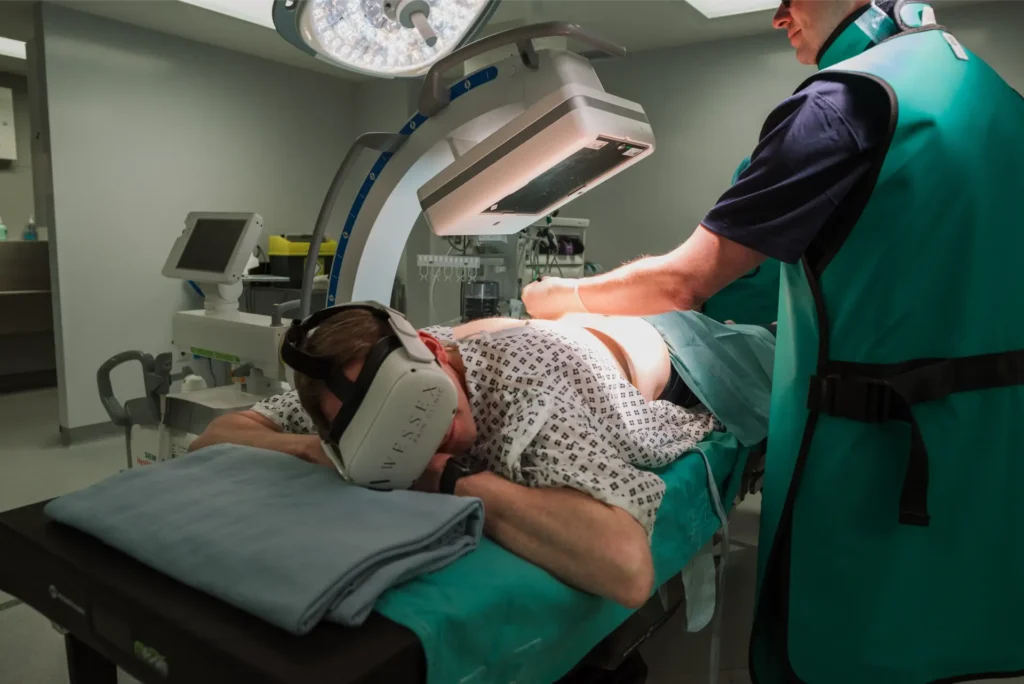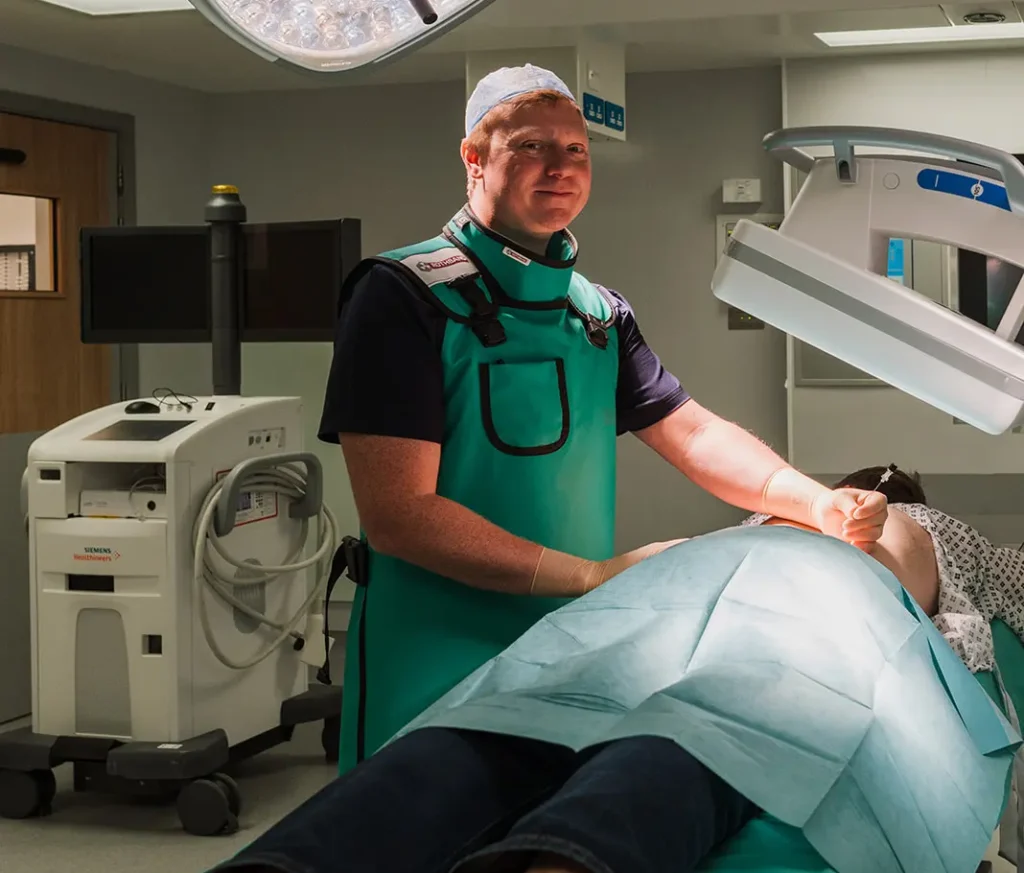Back pain is one of the most frequently reported musculoskeletal issues, affecting individuals across various age groups. It can range from a mild, persistent ache to severe pain that restricts movement and daily activities. Contributing factors include poor posture, muscle or ligament strain, disc issues (such as herniations), spinal arthritis, or osteoporosis.
Lifestyle aspects like heavy lifting, a sedentary routine, or being overweight can worsen back problems. While often frustrating, many forms of back pain respond well to targeted treatments and preventive measures.

At Wessex Pain Clinic, our doctor-led approach starts with a thorough medical history, focusing on your symptoms, when they began, and any activities that intensify or alleviate them.
A physical examination checks spinal alignment, flexibility, and signs of nerve involvement, such as numbness or weakness in the legs.
Where indicated, imaging studies (X-rays, MRI, or CT scans) help reveal structural problems. In certain cases, blood analyses may be performed to rule out other conditions.

Over-the-counter options, such as paracetamol or NSAIDs, can help manage mild to moderate pain. Stronger prescription analgesics may be used under close supervision for severe cases. Muscle relaxants or neuropathic pain medications can also be beneficial.
Our friendly team is on hand to support you every step of the way. Please get in touch at any time.